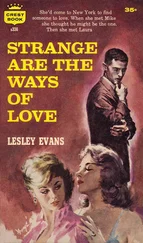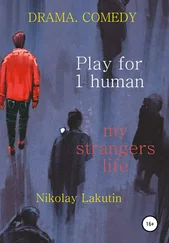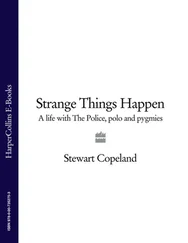Douglas Hofstadter - I Am a Strange Loop
Здесь есть возможность читать онлайн «Douglas Hofstadter - I Am a Strange Loop» весь текст электронной книги совершенно бесплатно (целиком полную версию без сокращений). В некоторых случаях можно слушать аудио, скачать через торрент в формате fb2 и присутствует краткое содержание. Жанр: Прочая документальная литература, на английском языке. Описание произведения, (предисловие) а так же отзывы посетителей доступны на портале библиотеки ЛибКат.
- Название:I Am a Strange Loop
- Автор:
- Жанр:
- Год:неизвестен
- ISBN:нет данных
- Рейтинг книги:4 / 5. Голосов: 1
-
Избранное:Добавить в избранное
- Отзывы:
-
Ваша оценка:
- 80
- 1
- 2
- 3
- 4
- 5
I Am a Strange Loop: краткое содержание, описание и аннотация
Предлагаем к чтению аннотацию, описание, краткое содержание или предисловие (зависит от того, что написал сам автор книги «I Am a Strange Loop»). Если вы не нашли необходимую информацию о книге — напишите в комментариях, мы постараемся отыскать её.
I Am a Strange Loop — читать онлайн бесплатно полную книгу (весь текст) целиком
Ниже представлен текст книги, разбитый по страницам. Система сохранения места последней прочитанной страницы, позволяет с удобством читать онлайн бесплатно книгу «I Am a Strange Loop», без необходимости каждый раз заново искать на чём Вы остановились. Поставьте закладку, и сможете в любой момент перейти на страницу, на которой закончили чтение.
Интервал:
Закладка:
The Nagging Worry that One Might Be a Zombie
Of late, not a few philosophers of mind have, like Dave, been caught in a tidal wave of fascination with this notion called “zombies”. (Actually, it’s more like “the notion we love to hate”.) It seems to have originated in voodoo rites in the Caribbean and to have spread from there to horror films and then to the world of literature. A Web search will quickly give you all the information you want, and most of it is pretty funny.
Basically, a zombie is an unconscious humanoid who acts — oops, I mean “that acts” — as if it were conscious. There’s no one home inside a zombie, though from the outside one might think so. I have to admit, once in a blue moon I’ve run into someone whose glazed eyes give me the eerie sense that there’s no one home behind them. Of course, I don’t take such impressions seriously. Yet for many philosophers, the hollow, glazed-eyes image has turned into a paradigmatic fear, and today there is no paucity of philosophers of mind who find the notion of a zombie not just painfully abhorrent but in fact perplexingly coherent. These philosophers are so troubled by the specter of zombies that they have taken as their sacred mission to show that our world is not the cold and empty Universe Z, but the warm and fuzzy Universe Q.
Now you might say that this whole book buys into the cold, glazed-eyes, zombie vision of human beings, since it posits that the “I” is, when all is said and done, an illusion, a sleight of mind, a trick that a brain plays on itself, a hallucination hallucinated by a hallucination. That would mean that we all are unconscious but we all believe we are conscious and we all act conscious. All right, fine. I agree that that’s a fair characterization of my views. But the swarm of zombie-fearing philosophers all want our inner existence to be richer than that. They claim that they can easily conceive of a cold, icy universe populated solely by nightmarishly hollow zombies, yet not distinguishable in any objective way from our own universe; at the same time, they insist that such is not the universe we live in. According to them, we humans don’t just act conscious or claim to be conscious; we truly are conscious, and that’s another matter entirely. Therefore Hofstadter and Parfit are wrong, and David Chalmers is right.
Well, I think Dan Dennett’s criticism of such philosophers hits the nail on the head. Dan asserts that these thinkers, despite their solemn promises, are not conceiving of a world identical to ours but populated by zombies. They don’t even seem to try very hard to do so. They are like SL #642, who, when imagining what a strange loop would say on looking at a brilliant purple flower, chose the dehumanizing verb “drone” to describe how it would talk, and likened its voice to a mechanical-sounding recorded voice in a hated phone menu tree. SL #642 has a stereotype of a strange loop as soul-less, and that prejudice rides roughshod over the image of perfectly natural, normal human behavior. Likewise, philosophers who fear zombies fear them because they fear the mechanical drone, the glazed eyes, and the frigid inhumanity that would surely pervade a world of mere zombies — even if, only a moment before, they signed off on the idea that such a world would be indistinguishable from our world.
Consciousness Is Not a Power Moonroof
In debates about consciousness, one of the most frequently asked questions goes something like this: “What is it about consciousness that helps us survive ? Why couldn’t we have had all this cognitive apparatus but simply been machines that don’t feel anything or have any experience?” As I hear it, this question is basically asking, “Why did consciousness get added on to brains that reached a certain level of complexity? Why was consciousness thrown into the bargain as a kind of bonus ? What extra evolutionary good does the possession of consciousness contribute, if any?”
To ask this question is to make the tacit assumption that there could be brains of any desired level of complexity that are not conscious. It is to buy into the distinction between Machines Q and Z sitting side by side on the old oaken table in Room 641, carrying out identical operations but one of them doing so with feeling and the other doing so without feeling. It assumes that consciousness is some kind of orderable “extra feature” that some models, even the fanciest ones, might or might not have, much as a fancy car can be ordered with or without a DVD player or a power moonroof.
But consciousness is not a power moonroof (you can quote me on that). Consciousness is not an optional feature that one can order independently of how the brain is built. You cannot order a car with a two-cylinder motor and then tell the dealer, “Also, please throw in Racecar Power ®for me.” (To be sure, nothing will keep you from placing such an order, but don’t hold your breath for it to arrive.) Nor does it make sense to order a car with a hot sixteen-cylinder motor and then to ask, “Excuse me, but how much more would I have to throw in if I also want to get Racecar Power ®?”
Like my fatuous notion of optional “ Racecar Power ®”, which in reality is nothing but the upper end of a continuous spectrum of horsepower levels that engines automatically possess as a result of their design, consciousness is nothing but the upper end of a spectrum of self-perception levels that brains automatically possess as a result of their design. Fancy 100-hunekerand-higher racecar brains like yours and mine have a lot of self-perception and hence a lot of consciousness, while very primitive wind-up rubber-band brains like those of mosquitoes have essentially none of it, and lastly, middle-level brains, with just a handful of hunekers (like that of a two-year-old, or a pet cat or dog) come with a modicum of it.
Consciousness is not an add-on option when one has a 100-huneker brain; it is an inevitable emergent consequence of the fact that the system has a sufficiently sophisticated repertoire of categories. Like Gödel’s strange loop, which arises automatically in any sufficiently powerful formal system of number theory, the strange loop of selfhood will automatically arise in any sufficiently sophisticated repertoire of categories, and once you’ve got self, you’ve got consciousness. Élan mental is not needed.
Liphosophy
Philosophers who believe that consciousness comes from something over and above physical law are dualists. They believe we inhabit a world like that of magical realism, in which there are two types of entities: magical entities, which possess élan mental, and ordinary entities, which lack it. More specifically, a magical entity has a nonphysical soul, which is to say, it is imbued with exactly one “dollop of consciousness” (a dollop being the standard unit of élan mental ), while ordinary entities have no such dollop. (Dave Chalmers believes in two types of universe rather than two types of entity in a single universe, but to me it’s a similar dichotomy, since we can consider various universes to be entities inside a greater “meta-verse”.) Now I should like to be very sure, dear reader, that you and I are on the same page about this dichotomy between magical and ordinary entities, so to make it maximally clear, I shall now parody it, albeit ever so gently.
Imagine a philosophical school called “liphosophy” whose disciples, known as “liphosophers”, believe in an elusive — in fact, undetectable — and yet terribly important nonphysical quality called Leafpilishness (always with a capital “L”) and who also believe that there are certain special entities in our universe that are imbued with this happy quality. Now, not too surprisingly, the entities thus blessed are what you and I would tend to call “leaf piles” (with all the blurriness that any such phrase entails). If you or I caught a glimpse of such a thing and were in the right mood, we might exclaim, “Well, what do you know — a leaf pile!” Such an enthusiastic outburst would more than suffice for you and me, I suspect. We would not be likely to dwell much further on the situation.
Читать дальшеИнтервал:
Закладка:
Похожие книги на «I Am a Strange Loop»
Представляем Вашему вниманию похожие книги на «I Am a Strange Loop» списком для выбора. Мы отобрали схожую по названию и смыслу литературу в надежде предоставить читателям больше вариантов отыскать новые, интересные, ещё непрочитанные произведения.
Обсуждение, отзывы о книге «I Am a Strange Loop» и просто собственные мнения читателей. Оставьте ваши комментарии, напишите, что Вы думаете о произведении, его смысле или главных героях. Укажите что конкретно понравилось, а что нет, и почему Вы так считаете.












